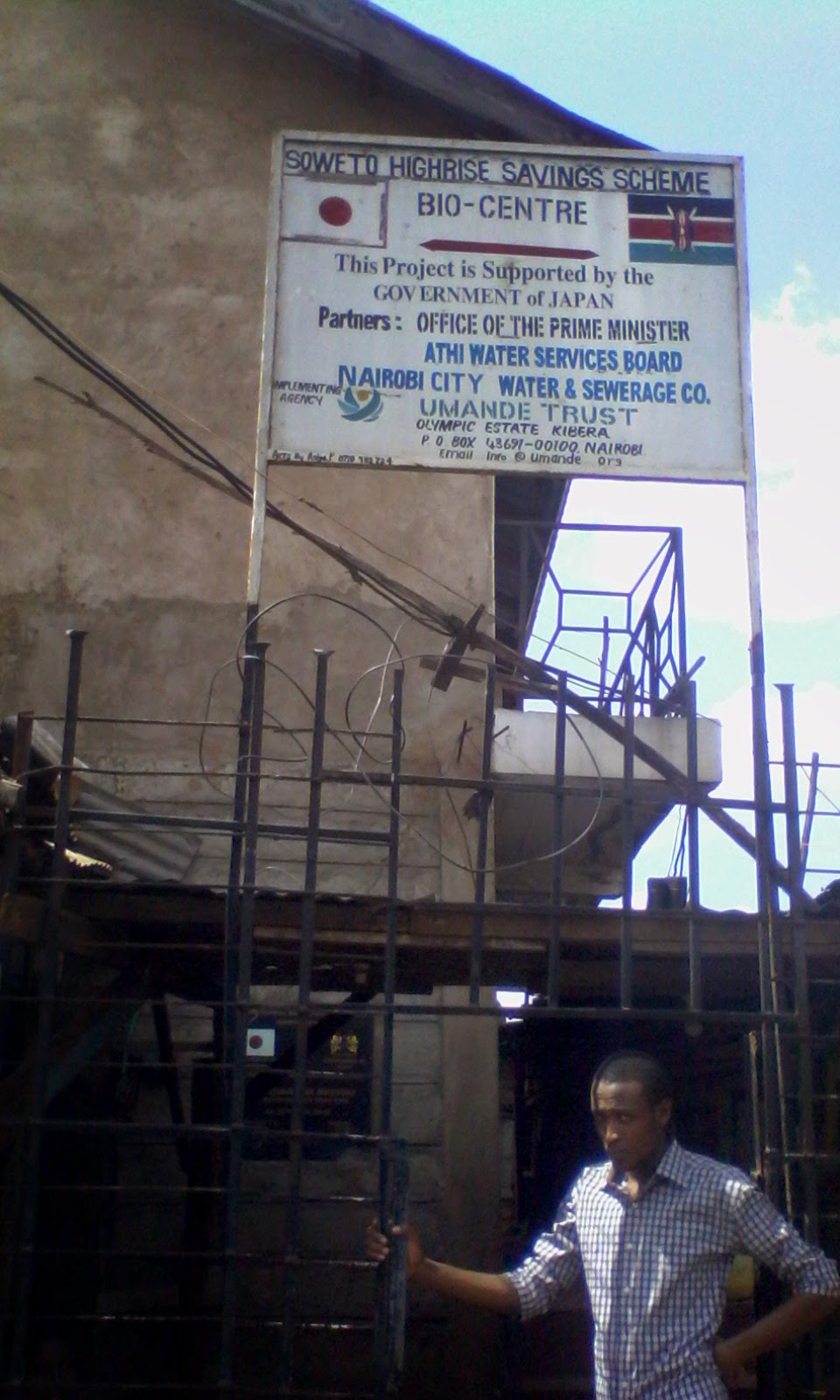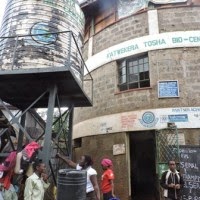My Trip to Kibera
 |
| Outside of the Bio-Centre |
Just the other day, I was watching the news
and I saw so many activities happening in Kibera. Many individuals within
governmental and non-governmental organizations come to Kibera to gain
professional experience and education.. I knew there was something in this
place, good or bad, and I was eager to find it out.
Born and bred in Nairobi, I had never been
to Kibera making me feel ignorant to the area and what it entailed, a vice I
abhor. I mean, Kibera is the largest slum in Nairobi and the largest urban slum
in Africa. Most of its residents live in extreme poverty, earning less than one
dollar per day. I wanted to know how they survive, considering I spend two
hundred shillings a day just on transport! People living with HIV/ AIDS are
many, cases of assault and rape are common, there are few schools (and schools
with affordable prices at that), clean water is scarce (hence diseases caused
by poor hygiene are prevalent), and the majority
of residents lack access to healthcare.
After my external research, I came to the
conclusion that this is the reason why so many non governmental organizations
come to Kibera.Clearly,these are human beings who lack the basic necessities nobody
can live without: food, clothing , shelter, healthcare and education, as summed
up above.
These are the things I read about before
going to Kibera, and I wanted to see this practically. I ended up in one of the
villages in Kibera called Laini Saba, and I visited the Soweto High rise Bio
Centre.Since Kibera has so many self-help groups, I was intrigued by this significant
aspect of the settlement. I wanted to know the various types of groups there
were and the various functions they each have, especially those serving the
vulnerable groups such as women, children, orphans and the disabled. I was also
engrossed on the status and distribution of the basic necessities such as
water, food, clothing and shelter.
I write my personal experience so as to
give an imagine of Kibera to those who have not been there. I don’t know about
you, but I had formed this attitude about Kibera before my visit, but it
changed soon after. Beginning now, I hope to be a good ambassador to those who
have never been to Kibera.
Kibera
is not heaven, but definitely not hell either. People do live here, and it is
certainly habitable. As I was, you might be surprised to find there are gated
communities within Kibera with the same tarmacked parking lots as those you see
in posh areas.
However, outside these communities, what
covers most of the environment is inorganic litter, smoke, congested housing
with rusted roofing.
 But what captured my attention was the Bio
Centre that I got to visit; Soweto High Rise. It is one among the many, but
also one in a million. Those in charge at the Centre serve their community
members with passion, their goal being to permanently settle their members in
land owned by them to avoid eviction in the future. They have a team of leaders
that are outstanding. This leadership is what captures my curiosity. They are
accountable, transparent and service-oriented leaders, a hard quality to find
in many organizations these days. Also, they have a constitution (see left), identification
cards, certificate of membership (see right and below), and a Saving Scheme initiative, all seen below.
But what captured my attention was the Bio
Centre that I got to visit; Soweto High Rise. It is one among the many, but
also one in a million. Those in charge at the Centre serve their community
members with passion, their goal being to permanently settle their members in
land owned by them to avoid eviction in the future. They have a team of leaders
that are outstanding. This leadership is what captures my curiosity. They are
accountable, transparent and service-oriented leaders, a hard quality to find
in many organizations these days. Also, they have a constitution (see left), identification
cards, certificate of membership (see right and below), and a Saving Scheme initiative, all seen below.
Nevertheless, like any other organization,
they face many challenges. I was distressed to learn that presently, they face
a threat of being shattered. One of the
outlets of the bio digester tanks faces a road that has plans to expand. The
Government’s purpose of expanding the road is to upgrade Soweto The expansion is
to conflict with the land the Bio Centre is located. If the outlet is tampered with,
then the Bio Centre would need to close down and the effluents would pollute
the environment.
 |
| Bio-Centre Safe |
Sincerely
speaking, I loved my visit and I look forward to going back, this time with
zeal and a bit more insight to some of the problems I witnessed. This is one
management we should emulate. The same that we should fight for to sustain.
By: Jill Apiyo




Comments
Post a Comment